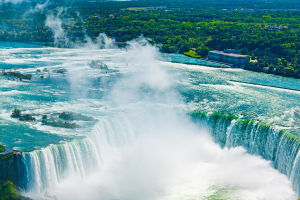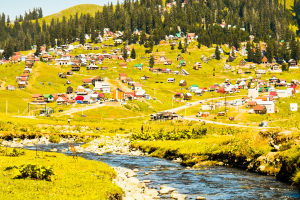Have you ever felt trapped by your own travel itinerary? I certainly did. For years, I planned every detail of every trip—from flights and hotels to museums and meals.
I thought this was the best way to avoid disappointment. But then, on a recent trip, I decided to throw away the map—literally and figuratively.
That decision to travel without a plan was scary at first.
No reservations, no fixed destinations, no lists. Just a backpack and a vague idea of where I might go next. It felt like stepping off a cliff without a parachute. But what happened afterward changed how I see travel—and life.
The Freedom of Saying "Yes" to the Unexpected
Without a rigid plan, every moment became an invitation.
I remember arriving in a small coastal town with no hotel booked. Instead of rushing to the nearest tourist spot, I wandered into a local market, chatting with vendors and tasting street food I'd never seen on a menu before. That night, I found a cozy guesthouse by chance, and met travelers who became friends by morning.
• No pressure to check off a "must-see" list
• Opportunities to follow spontaneous tips from locals
• Space to explore places that weren't on any map
Experts in psychology say that unstructured experiences like these can boost creativity and reduce stress. The freedom to choose without a plan opens your mind to new possibilities—and I felt that with every step.
Learning to Adapt: Building Real Adventure Skills
Traveling without a plan means learning to solve problems on the go.
One day, I found myself stuck when the train I was planning to take was suddenly canceled. Instead of panicking, I asked around, hopped on a local bus, and ended up in a tiny village where no tourists seemed to visit. I had no idea where I'd sleep that night, but locals welcomed me warmly, showing me their favorite spots and sharing meals.
• Flexibility builds confidence
• Challenges turn into memorable stories
• You develop a sharper sense of observation and intuition
According to travel experts, this kind of adaptive mindset isn't just useful on the road—it helps in everyday life, too, making us more resilient and open-minded.
Experiencing Authenticity: Beyond Tourist Lenses
Without a schedule, I wasn't rushing from landmark to landmark. Instead, I spent time in everyday places—cafés, parks, markets—where I could observe real life happening.
On a quiet afternoon, I sat by a riverbank watching children play and fishermen casting nets. No guidebook mentioned this spot, yet it gave me a deeper connection to the place than any famous site could.
• Authentic moments are often unplanned
• Slowing down reveals hidden beauty
• You connect with locals beyond the surface
Tourism advisor Simon Calder said, "To truly know a destination, follow where the locals go, not the guidebooks." Travelers who spend time off the beaten path report higher satisfaction and personal growth, a clear benefit of unplanned journeys.
When No Plan Means More Stories
The best stories from my trip were never planned—they happened because I was open to the unknown.
From sharing a midnight meal with strangers to stumbling upon a festival I hadn't heard of, these moments brought excitement and meaning to my travels.
If you think about it, isn't life itself a bit like this? The best parts are often surprises, not schedules.
Would You Try Traveling Without a Plan?
So, I ask you: When was the last time you let go of control and embraced uncertainty? How might your travels—and your life—change if you allowed room for the unexpected?
Some travel experts encourage travelers to balance planning with spontaneity, reminding us that some of the most meaningful experiences happen when we're willing to say "yes" to whatever comes next.
If you're ready to step off the beaten path, pack lightly—in mind and suitcase—and see where the road takes you. Sometimes, the best plan is no plan at all.


